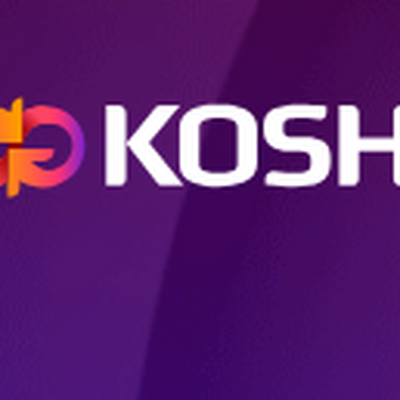Notifications
ALL BUSINESS
COMIDA
DIRECTORIES
ENTERTAINMENT
FINER THINGS
HEALTH
MARKETPLACE
MEMBER's ONLY
MONEY MATTER$
MOTIVATIONAL
NEWS & WEATHER
TECHNOLOGIA
TV NETWORKS
VIDEOS
VOTE USA 2026/2028
INVESTOR RELATIONS
COMING 2026 / 2027
ALL BUSINESS
COMIDA
DIRECTORIES
ENTERTAINMENT
FINER THINGS
HEALTH
MARKETPLACE
MEMBER's ONLY
MONEY MATTER$
MOTIVATIONAL
NEWS & WEATHER
TECHNOLOGIA
TV NETWORKS
VIDEOS
VOTE USA 2026/2028
INVESTOR RELATIONS
COMING 2026 / 2027
 Koshai Koshai -
December 30, 2023 -
Business -
Finance Reporting Automation
Software for Finance Reconciliation
Finance Process Automation Software
Tools to Automate Finance Processes
-
456 views -
0 Comments -
0 Likes -
0 Reviews
Koshai Koshai -
December 30, 2023 -
Business -
Finance Reporting Automation
Software for Finance Reconciliation
Finance Process Automation Software
Tools to Automate Finance Processes
-
456 views -
0 Comments -
0 Likes -
0 Reviews

In the fast-paced realm of financial technology (fintech), where agility and accuracy are paramount, leveraging advanced tools becomes imperative. Account reconciliation software stands out as a key asset for fintech services, offering a streamlined approach to ensure financial precision, compliance, and operational efficiency. This article explores the significance of account reconciliation software in the fintech landscape, its key features, and the benefits it brings to the forefront of financial operations.
The Crucial Role of Account Reconciliation in Fintech:
Account Reconciliation Software for Fintech Services, reconciling accounts is the linchpin that ensures accuracy, compliance, and transparency. Fintech services, known for their innovative and technology-driven approach, rely on account reconciliation software to navigate the complexities of transactional data and financial reporting.
Key Features of Account Reconciliation Software for Fintech:
Automated Matching Algorithms:
Functionality: Employs advanced algorithms to automatically match and reconcile vast datasets, reducing the need for manual intervention.
Benefit: Accelerates the reconciliation process, minimizes errors, and ensures real-time accuracy.
Transaction Monitoring and Alerts:
Functionality: Monitors transactions in real time and generates alerts for discrepancies or irregularities.
Benefit: Proactively identifies and addresses potential issues, enhancing fraud detection and risk management.
Integration Capabilities:
Functionality: Seamless integration with various financial systems, including core banking platforms, payment gateways, and fintech applications.
Benefit: Provides a unified view of financial data, promoting interoperability and data consistency.
Customizable Reconciliation Rules:
Functionality: Allows customization of reconciliation rules to align with specific business requirements and compliance standards.
Benefit: Enhances flexibility, enabling fintech services to adapt reconciliation processes to evolving needs.
Audit Trails and Compliance Reporting:
Functionality: Maintains comprehensive audit trails for every reconciliation process and generates compliance reports.
Benefit: Facilitates regulatory compliance, audit readiness, and transparency in financial operations.
Benefits of Account Reconciliation Software for Fintech Services:
Accuracy and Efficiency:
Benefit: Automates reconciliation processes, reducing the risk of human error and ensuring accurate financial reporting.
Operational Cost Savings:
Benefit: Minimizes the need for manual reconciliation efforts, leading to operational cost savings and resource optimization.
Real-time Visibility:
Benefit: Provides real-time visibility into financial transactions, enabling timely decision-making and risk mitigation.
Enhanced Fraud Detection:
Benefit: Utilizes advanced algorithms and transaction monitoring to detect and prevent fraudulent activities promptly.
Scalability for Growth:
Benefit: Adaptable to the growing volumes of financial transactions, supporting the scalability of fintech services.
Implementing Account Reconciliation Software in Fintech Services:
Assessment of Business Needs:
Strategy: Conduct a thorough assessment of reconciliation requirements and business processes to tailor the software implementation accordingly.
Collaboration with IT Teams:
Strategy: Collaborate with IT teams to ensure seamless integration with existing financial systems and technology infrastructure.
Training and Adoption:
Strategy: Provide comprehensive training to staff members to maximize the utilization of account reconciliation software and ensure a smooth adoption process.
Continuous Monitoring and Optimization:
Strategy: Establish a system for continuous monitoring, optimization, and updating of reconciliation rules to align with evolving business dynamics.
Leading Account Reconciliation Software Providers for Fintech:
Trintech:
Features: Offers automated reconciliation, exception management, and compliance reporting.
Benefits: Streamlines financial processes, enhances accuracy, and ensures compliance.
BlackLine:
Features: Provides cloud-based solutions for account reconciliation, journal entry management, and financial close processes.
Benefits: Improves efficiency, transparency, and collaboration in financial operations.
Fiserv:
Features: Delivers comprehensive reconciliation and financial management solutions for fintech services.
Benefits: Enhances operational efficiency, reduces risk, and ensures regulatory compliance.
Conclusion:
In the fintech landscape, where agility, accuracy, and compliance are non-negotiable, account reconciliation software emerges as a catalyst for financial precision. By harnessing the power of advanced algorithms, real-time monitoring, and seamless integration, fintech services can navigate the complexities of financial transactions with confidence, ensuring a robust foundation for innovation and growth in the ever-evolving world of financial technology.
For more info. Visit us:
